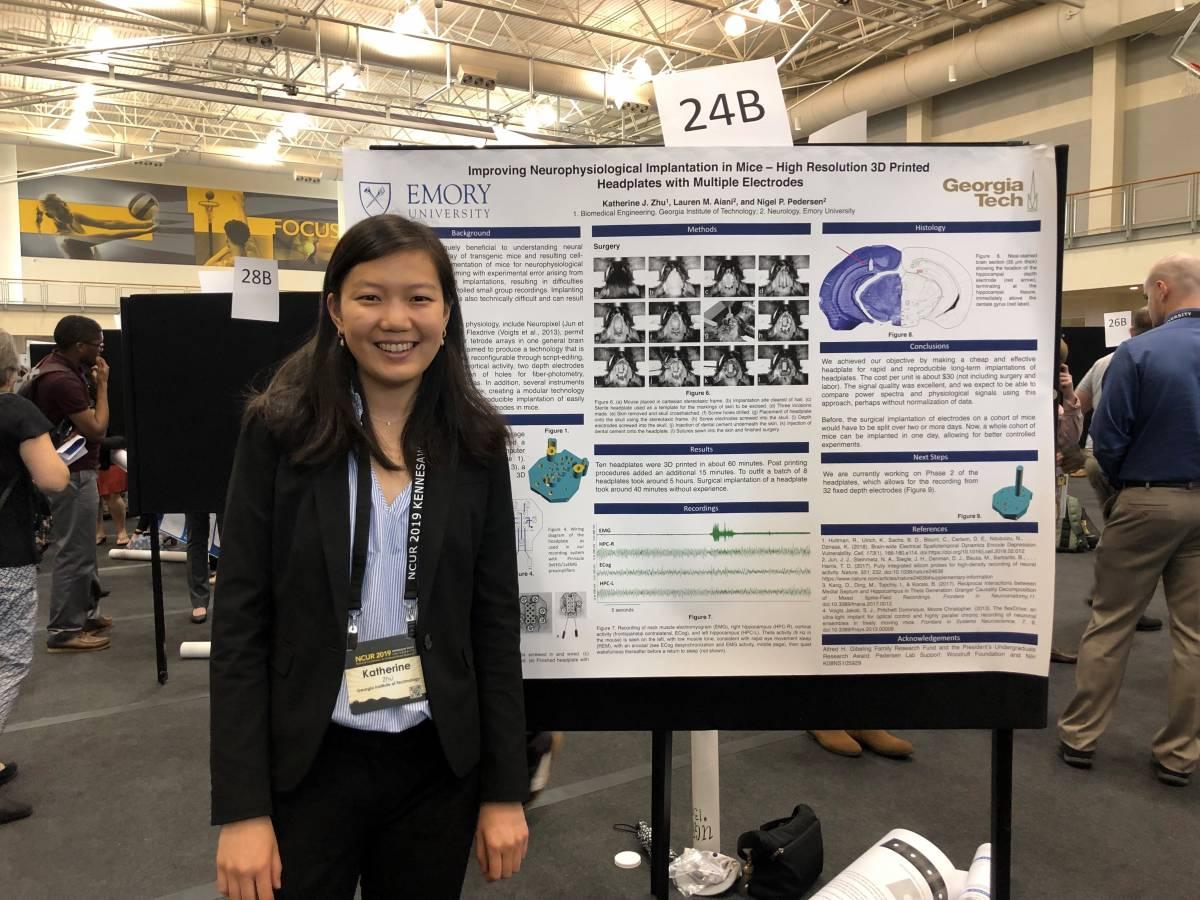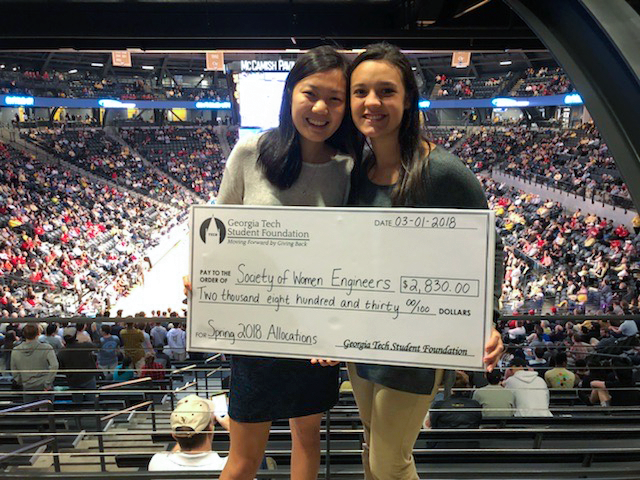Biomedical engineering student Katie Zhu imagines her future in medicine

As a child growing up in a household of software engineers, Katie Zhu was an outlier. When she and her family visited museums as she was growing up, Katie gravitated towards exhibits on the human body. She was fascinated by the science of how it all works, and she thought the most impressive job in the world was to be an OB-GYN, because there could be nothing more amazing than helping bring human life into the world.
Things have changed a bit since then, but not much. Zhu is a fourth-year undergraduate student in the Coulter Department of Biomedical Engineering. She’s graduating in May and working towards medical school after taking advantage of all her biomedical engineering degree has to offer.
Her Research
More than 33 percent of College of Engineering undergrads do research at a Georgia Tech lab, and Zhu is one of them. Thanks to the biomedical engineering department's collaboration between Georgia Tech and Emory University, Zhu takes a bus over to Emory several times a week to work in Nigel Pederson’s Lab of Epilepsy and Systems Neuroscience, which aims to understand the relationship between certain brain structures, seizures and sleep and wake cycles. Researchers think that some brain structures that control sleep and wake cycles may also trigger seizures, and studies on both humans and mice will help them understand this interaction more fully.
Researchers use mice because they’re uniquely beneficial for understanding this relationship. However, Zhu says it’s extremely difficult to monitor the brain activity of mice because their brains are so small. Zhu’s part in the research works to design and 3D-print headplates – think a tiny hat – that are then connected to electrodes and surgically implanted onto the skulls of mice. This allows researchers to precisely access several different parts of the brain at the same time, unveiling new knowledge about how seizures start and spread. Discoveries made through Zhu’s work in the lab could help empower future clinical trials and other work in humans.
This animal research is essential to understanding certain neuroscience principles, but Zhu prefers working with humans and seeing how her work directly impacts others.

Her Impact
When she’s not studying for her medical school entrance exam, completing coursework, or doing research, Zhu works to help the people in her community. She is a volunteer at Al Farooq Masjid Free Clinic, a resource for insured or uninsured patients in Atlanta and surrounding communities.
Zhu’s work triaging patients and completing paperwork at the free clinic has given her a better understanding of the healthcare system and how to best serve all kinds of patients. She can see the challenges she will confront someday as a doctor.
“I think interacting with the patients is my favorite part,” said Zhu. “It's definitely been a learning experience just trying to interact with people who don't speak the same language as I do or don't share the same culture as me.”
Zhu also serves as the vice president of youth programs for the Georgia Tech chapter of the Society of Women Engineers. Throughout her years at Georgia Tech, Zhu says that the women in this organization have supported her time and time again – when she struggles with a class, needs to get an internship, or is looking for guidance on being a woman in a scientific or engineering field.
She passes these lessons along to future engineering students through outreach events that bring elementary, middle, and high school students to campus to learn about what it means to be a woman in STEM. Activities range from creating homemade lip gloss to panel discussions on how to choose a college.
It was the Society of Women Engineers that helped her find research opportunities and land an internship spot at Boston Scientific. Through all the different opportunities she has worked through, Zhu realized that it is person-to-person interaction and impact that makes her tick. That’s why she wants to be a doctor.

Her Future
Zhu will graduate with her degree in biomedical engineering in just a few months. She, like many graduates, is unsure of what the future will hold, but she is certain that she will incorporate her love of healing with her engineering skills. Right now, she’s thinking of becoming a surgeon.
“The BME curriculum has trained me to find where problems are,” said Zhu. “If you interact with enough patients or people have devices that are constantly in use, they can always be improved in some way. I think as a physician you have a unique role where, hypothetically if it was a device that you use in surgery, you use that device every single time you do surgery. You know where the problems lie, and you can solve them.”
Zhu predicts that it is through engineering that the healthcare industry will be able to adapt and grow to support those who need it.
“I'm most hopeful about the fact that technologies are changing so rapidly in that the amount of people that can be impacted is just rapidly growing day by day, year by year,” said Zhu. “I'm excited for what the future holds.”
Whatever Zhu’s own future holds, she is sure to make an impact on her patients and on the world around her, dressed in scrubs and a white coat embroidered with “Dr. Katie Zhu, M.D.”